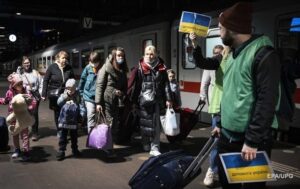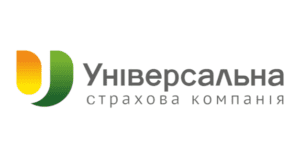
The number of refugees from Ukraine registered for temporary protection or similar national protection schemes in Europe reached 4 million 426.75 thousand as of October 25, 2022, the Office of the United Nations High Commissioner for Refugees (UNHCR) reported on its website.
For the month since September 30, the growth amounted to 242.9 thousand, while for the previous month – about 214.3 thousand, and in total since the end of May – about 1.5 million.
The largest increase over the past month was shown by Germany (data for October 8) – about 106 thousand, Poland – about 60 thousand, Czech Republic – about 14 thousand.
According to UNHCR data collected from national governments, the largest number of refugees with temporary protection status in Poland is 1 million 469.03 thousand, while 7.365 million people have arrived in the country from Ukraine, according to the Polish border service, since the beginning of the war, and in the opposite direction departed to Ukraine 5.547 million.
Following are Germany and the Czech Republic, where the number of refugees registered for temporary protection from Ukraine amounted to 815.13 thousand and 452.91 thousand, respectively.
The UN, referring to government data, indicates that in total in Germany, where Ukrainians were allowed to stay without registration until the end of August, 1 million 2.67 thousand refugees from Ukraine were recorded, which is only 5 thousand more than a month ago.
In the Czech Republic, the situation, according to UN information, is different: almost all arrivals applied for protection status – 452.91 thousand out of 453.10 thousand.
In the vast majority of other countries, the picture is similar to the Czech Republic: the statistics of registered refugees is completely or almost equal to the statistics of those who applied for protection status, which is probably due to the peculiarity of their registration and the completion of the 90-day period of stay under the visa-free regime. An exception, similar to Germany, is only Estonia – 37.66 thousand with the status of 60.98 thousand refugees registered in the country and partly Romania – 76.16 thousand out of 86.21 thousand.
Italy is still in fourth place in terms of the number of registered refugees from Ukraine – 160.67 thousand (an increase of 3 thousand), and Spain closes the top five – 149.21 thousand (an increase of 4.5 thousand).
Following are Bulgaria with an indicator of 142.81 thousand (an increase of 6.6 thousand), the only one in which the number of registered with the status of temporary protection is much higher than the number of registered refugees from Ukraine – 55.26 thousand, the UK – 138.4 thousand. (growth by 6.7 thousand) and France – 105 thousand (data as of September 26).
From 50 thousand to 100 thousand refugees from Ukraine with the status of temporary protection also in Slovakia – 98.57 thousand (an increase of 3.4 thousand), Austria – 84.76 thousand, the Netherlands – 79.25 thousand ( data as of September 30), Lithuania – 68.93 thousand, including Switzerland – 66.81 thousand (an increase of 5 thousand), Ireland – 60.51 thousand (an increase of 5.7 thousand), Belgium – 57.83 thousand and Portugal – 52.88 thousand (data as of October 3), as well as Romania mentioned above.
Following with indicators from 25 thousand to 50 thousand are Sweden – 47.38 thousand, Latvia – 40.67 thousand, Finland – 42.29 thousand. Denmark is also in this category – 34.41 thousand, Hungary – 31.29 thousand, Norway – 30.57 thousand, as well as Estonia, which was discussed above.
From 10 to 25 thousand refugees from Ukraine with the status of temporary protection in Greece – 20.0 thousand, Croatia – 18.93 thousand and Cyprus – 17.63 thousand.
In addition, the UN statistics on those who received the status of temporary protection include refugees of Ukraine in Slovenia – 7.90 thousand, Luxembourg – 6.76 thousand, Montenegro – 6.65 thousand, Iceland – 1.77 thousand, in Malta – 1.42 thousand, in Serbia and Kosovo – 1.04 thousand and Liechtenstein – 0.4 thousand.
The UN also indicated the countries in which refugees from Ukraine were recorded, but there is no data on their status: Turkey (data as of May 19) – 145 thousand, Moldova – 95.73 thousand, Georgia – 26.79 thousand, Northern Macedonia – 6.16 thousand, Azerbaijan – 3.93 thousand, Albania – 2.62 thousand, Armenia – 0.49 thousand and Bosnia and Herzegovina – 0.13 thousand.
Separately, the UN indicates Russia and Belarus, the Ukrainian border with which 2 million 852.4 thousand and 16.7 thousand people, respectively, crossed, however, after October 3, data for Russia ceased to be updated, while for Belarus they are even older. According to the UN, all those who crossed the border were recorded in the Russian Federation, while in Belarus – 15.93 thousand. There is no data on obtaining the status by them, as well as data on crossing the border of Ukraine in the opposite direction.
According to UNHCR data, as of October 25, a total of 14.592 million people have left Ukraine since the beginning of the war (excluding entry flow), of which 7.114 million went to Poland, 2.852 million to Russia (data as of October 3), and Hungary to 1.629 million people, Romania – 1.426 million people, Slovakia – 888.4 thousand people, Moldova – 670.2 thousand people, Belarus – 16.7 thousand people.
At the same time, according to the UN, from February 28 to October 25, 7.144 million people entered Ukraine (excluding data from Hungary, the Russian Federation and Belarus).
“Since the beginning of the Russian invasion, almost a third of Ukrainians have been forced to leave their homes. This is one of the largest displacement crises in the world today. In Ukraine, about 6.2 million people remain displaced by war,” says UNHCR, which downgraded its estimate of internally displaced people in October persons per 0.8 million people.
UNHCR indicates that by mid-2021 there were only 53.47 thousand Ukrainian refugees in the world who applied for the appropriate status, of which 36.49 thousand were in Europe.
As of mid-2020, the UNHCR estimated the Ukrainian diaspora in the world at 6.1 million, including 5 million in Europe.

Germany handed over 14 generators of various capacities to units of the State Emergency Service of Ukraine, the press service of the German Embassy in Ukraine reports.
“14 generators of different capacities for the units of the State Emergency Service in Donetsk, Kyiv, Lugansk, Chernihiv and Cherkasy regions are already in Ukraine,” the message on Facebook says.
It is noted that the delivery was provided by the Federal Agency for Technical Assistance (THW) with the financial support of the German Ministry of Foreign Affairs.

Ukrainian ports on Thursday left nine ships with food, having received permission from the Joint Coordination Center (JCC).
“As of October 27, the total tonnage of grain and other agricultural products exported from three Ukrainian ports is 9,016,389 tons.
A total of 794 ships were allowed to move at the moment – 395 for arrival at Ukrainian ports and 399 for departure from them,” the SCC said in a statement. It is noted that nine dry cargo ships with more than 117,000 tons left the ports of Ukraine on Thursday grain and other agricultural products. Four dry cargo vehicles – Princess Manissa (21 thousand tons of corn), A Line (10,903 tons of wheat), Sevil (5 thousand tons of soybeans) and Nesa (2.3 thousand tons of peas) – sailed to Turkey.
The ship Inoi (31,000 tons of various grain crops) is heading to Spain, the ship Adil Ibrahimli (6,630 tons of sunflower oil) is heading to Italy. In addition, the ship Stella GS will deliver 30,698 tons of corn to Tunisia, the ship Oris Jul – 5,750 tons of sunflower oil to Israel. Dry cargo Ahmet Agaoglu transports 4060 tons of wheat to Greece.
“The grain that has arrived at the destination can be processed and then be shipped to other countries,” the SCC explained. In Istanbul on July 22, with the participation of the UN, Russia, Turkey and Ukraine, a document was signed on the creation of a corridor for the export of grain from three Ukrainian ports: “Black Sea”, “Odesa” and “Pivdenny”.
AGRICULTURAL PRODUCTS, EXPORTED, framework, Istanbul Grain Agreement

The Main Directorate of the State Service of Ukraine for Emergency Situations in the Zhytomyr region and IC “Universalna” (Kyiv) signed an agreement for the purchase of services of compulsory insurance of civil liability of owners of land vehicles (OSAGO) in the amount of 261 units.
According to the Prozorro electronic public procurement system, the expected cost of purchasing services was UAH 590,963 thousand, the company’s price offer was UAH 306,328 thousand.
The IC “Kraina” took part in the tender with a price offer of 305 thousand UAH and MK “Prince VIG” – 353.1 thousand UAH.
As reported, IC “Universalnaya” has an international composition of shareholders, in particular, the European Bank for Reconstruction and Development (owns 30% of shares) and Fairfax Financial Holdings Limited (owns 70% of shares).

Six vessels with 223.4 thousand tons of food left Ukrainian ports on Friday, having received permission from the Joint Coordination Center (JCC).
“On October 28, six ships left Ukrainian ports, they are transporting a total of 223,430 tons of grain and other agricultural products as part of the Black Sea Grain Initiative,” the SKC said in a statement.
The ship Kavo Perdika will deliver 54,160 tons of corn to Israel, the ship Zante – 47,270 tons of rapeseed to Belgium. Dry cargo ship Asl Tia transports 39 thousand tons of sunflower meal to China, dry cargo ship Super Bayern transports 33 thousand tons of corn to Italy.
In addition, two ships Rising Eagle (25 thousand tons of wheat) and Lina (25 thousand tons of corn) are sent to Egypt.
“Grain that has arrived at its destination can be processed and then transported to other countries,” the SKC explained.
It is noted that as of October 27, the total tonnage of grain and other agricultural products exported from three Ukrainian ports is 9,239,819 tons.
“At the moment, 101 vessels have been registered for verification by the SKC, another 76 have applied to join the initiative,” the message says.
As reported, in Istanbul on July 22, with the participation of the UN, Ukraine, Turkey and Russia, two documents were signed on the creation, first, for a period of 120 days, of a corridor for the export of grain from three Ukrainian ports: Chernomorskaya, Odessa and Yuzhny. Ukraine set as its goal to export 3 million tons of agricultural products per month as part of the initiative.
AGRICULTURAL PRODUCTS, BELGIUM, CHINA, dry cargo ships, EGYPT, ISRAEL, ITALY

The decline in real gross domestic product (GDP) of Ukraine in the fourth quarter of 2022 compared to the same period last year will be 35.6% compared to 34.4% in the third quarter and 37.2% in the second quarter, such is the forecast of the National Bank of Ukraine published in the inflation report on his website on Friday night.
According to him, in the first quarter of 2023, the economy will also contract – by another 17.5%, given the higher base of the first quarter of this year, when the decline was 15.1%, and recovery will begin from the second quarter of next year.
In particular, in the second quarter it will be 13.9%, in the third – 9.2% and in the fourth – 11.3%, the NBU assumes.
The estimates of GDP dynamics updated by the National Bank for the fourth quarter of this year and the first quarter of the next are slightly better than in July, when it expected a 37.5% decline in the economy in the last quarter of this year and 19% in the first quarter of next year.
At the same time, the NBU worsened the forecast for economic recovery in the remaining three quarters of 2023.
In general, the National Bank, as previously announced, predicts a decline in GDP this year by 31.5% and its growth by 4% in 2023 and 5.2% in 2024, while in July it expected a decline this year by 33.4% and growth in 2023-2024 by 5.5% and 4.9%, respectively.
Nominal GDP, according to the document, this year may be reduced to UAH 4.75 trillion from UAH 5.46 trillion last year. However, due to high inflation (30% this year, 20.8% next year and 9.4% in 2024), nominal GDP will reach UAH 6.175 trillion in 2023, and UAH 7.35 trillion in 2024 , expects the National Bank.
“The baseline scenario is based on assumptions about the launch of a new program with the IMF, the implementation of a coordinated monetary and fiscal policy, the gradual leveling of quasi-fiscal imbalances, in particular in the energy sector. The baseline scenario also assumes a tangible reduction in security risks from the middle of next year, which will contribute to the full unblocking of sea ports, reducing the sovereign risk premium and returning forced migrants to Ukraine,” the report says.
The NBU clarifies that this scenario assumes the full opening of seaports from the second half of the year, an increase in gas and heating tariffs to 50% of parity, and the return of 0.4 million refugees out of 8 million who left in 2022.
The central bank adds that this baseline moderately optimistic forecast also assumes continued active international financial support for Ukraine of $28 billion in 2023 and $20 billion in 2024, compared with $31.1 billion this year (about $24.1 billion received so far). ).
The National Bank names the prolongation of the war and its escalation as the strongest risk for this scenario, estimating its probability from 25% to 50%. With the same probability, the National Bank assumes such risks as increased emigration and energy risks of the passage of winter, as well as the termination of gas transit. However, the degree of influence of the first two is moderate, and the termination of transit, which is expected to be 20 billion cubic meters. m per year – weak.
The NBU also names the unbalancing of public finances (low government bonds rates, freezing tariffs for housing and communal services, reduction of international aid, longer issue) among the strong risks of the base scenario, but its probability is lower – 15-25%.
The cessation of the grain corridor and the non-signing of the program with the IMF are classified as moderate risks in terms of their impact on the basic macro-forecast, however, the National Bank estimates their probability at 15-25% and less than 15%, respectively.
There is also a mention in the report of such a factor as the “Marshall Plan”, which can greatly affect and improve the macro forecast, but the Central Bank estimates its probability below 15%.